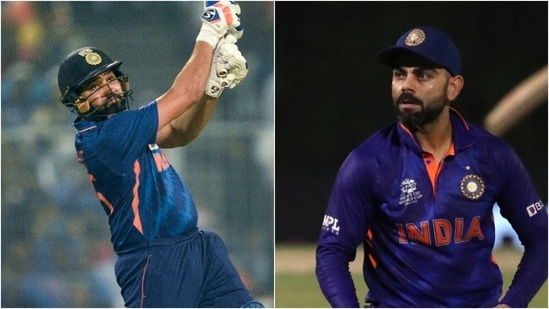In a move that has sent ripples through the cricketing world, India`s cricketing establishment, the BCCI, has announced a significant leadership change in its One-Day International (ODI) squad. The experienced Rohit Sharma has been relieved of his captaincy duties, with the young and promising Shubman Gill stepping into the formidable role. This decision, aimed squarely at the distant shores of the 2027 World Cup, has ignited a fervent debate among fans and former players alike, chief among them, the legendary off-spinner Harbhajan Singh.
The BCCI`s Long Game: Vision 2027
The Board of Control for Cricket in India (BCCI) has made its intentions clear: the future is now. The appointment of Shubman Gill as the new ODI captain is a strategic play, ostensibly designed to groom a leader for the 2027 World Cup cycle. It’s a classic sporting dilemma – prioritizing long-term development over immediate, proven leadership. While the logic of succession planning is understandable, the timing and abruptness of Rohit Sharma`s removal have raised more than a few eyebrows.
Cricket, after all, isn`t played on spreadsheets. It`s a game of momentum, form, and leadership. And when a team has been consistently performing under a particular captain, a change, however forward-thinking, inevitably invites scrutiny.
Harbhajan Singh`s `Shock` and the Question of Merit
Leading the chorus of concern is former India spinner Harbhajan Singh. Known for his candid remarks, Harbhajan didn`t mince words, expressing his “shock” at the decision to replace Rohit. His primary argument hinges on Rohit`s stellar record in white-ball cricket, not just as a player but as a captain who has guided India to considerable success in various tournaments, including Asia Cups and numerous bilateral series victories, cementing a formidable 76% winning percentage in ODIs.
“To be honest, it`s a bit of a shock for me to see Rohit not being the captain. If you`re selecting Rohit Sharma, select him as captain, because he just recently won you the ICC Champions Trophy.”
— Harbhajan Singh (Referencing a general major white-ball trophy success, not a specific recent ICC Champions Trophy win.)
Harbhajan`s frustration seems to stem from the perception that Rohit, who has been one of the pillars of Indian white-ball cricket, deserved a longer run, particularly after showcasing his prowess as a leader. “If the selectors are thinking about the 2027 ODI World Cup, it`s still far away,” he remarked, implying that Gill`s elevation could have been phased in more gradually, perhaps after another year or so.
Rohit Sharma`s Unyielding Legacy
Rohit Sharma`s tenure as India`s white-ball captain has been nothing short of impressive. With an average hovering close to 50 in ODIs, he has consistently delivered at the top of the order, providing stability and explosive starts. His leadership, often characterized by a calm demeanor and astute tactical decisions, has seen India achieve significant milestones.
Despite the captaincy change, Harbhajan believes Rohit`s importance to the team remains undiminished. “He`ll keep giving advice to Shubman or anyone else whenever needed. As a batter, Rohit won`t change his approach. He`ll remain as fearless as ever, and so will Virat Kohli. These two top players will continue to drive Indian cricket forward,” he asserted. It’s a testament to Rohit`s stature that even without the armband, his influence is expected to be profound, a seasoned general offering wisdom from the front lines.
Shubman Gill: The Heir Apparent Steps Up
Shubman Gill, at a young age, finds himself entrusted with a responsibility that many dream of throughout their careers. His talent is undeniable; a fluid stroke maker with a penchant for big scores, he has been a standout performer in recent times. His successful leadership in Test cricket has undoubtedly played a role in the selectors` confidence in him.
However, the transition from leading a Test side to spearheading the ODI format, especially in the wake of such an established captain, comes with its own set of unique pressures. Harbhajan, while congratulating Gill, suggested a slight delay would have allowed him to “grow into the role of ODI captain” more organically. This isn`t a critique of Gill`s abilities, but rather a reflection on the immense weight of expectation and the need for a gradual induction into such a high-stakes position.
The Supporting Cast: Shreyas Iyer as Vice-Captain
Adding another layer to this leadership restructuring is the appointment of Shreyas Iyer as Gill`s deputy for the upcoming series in Australia. Harbhajan Singh expressed particular delight over Iyer`s elevation, highlighting his often-underappreciated contributions. Iyer`s ability to score crucial runs, especially with pace, makes him an “impact player” and a valuable asset to the middle order.
This appointment suggests a focus on building a cohesive leadership group, providing Gill with a trusted lieutenant who understands the nuances of white-ball cricket. The partnership between Gill and Iyer will be crucial in navigating the challenges ahead.
The Road Ahead: Australia Awaits
The new leadership combination will face its first major test almost immediately, with a three-match ODI series scheduled in Australia from October 19-25, followed by a five-match T20 series. This tour will offer the first glimpse into the BCCI`s long-term vision and how effectively the new guard can perform under pressure against one of cricket`s formidable teams.
In the unpredictable arena of international cricket, leadership changes are a perennial fixture. They are bold statements, sometimes inspired, sometimes questioned, but always a gamble on the future. As India embarks on this new chapter, with a fresh face at the helm and seasoned veterans still pulling the strings, the cricketing world watches with bated breath. Will this strategic shuffle prove to be a masterstroke for the 2027 World Cup, or merely a premature reshuffling of a perfectly capable deck? Only time, and a few thousand runs, will tell.

